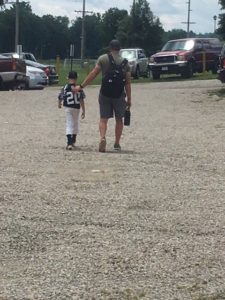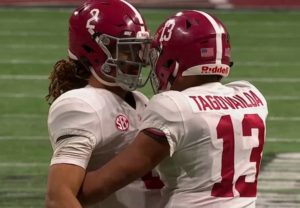As a collegiate baseball coach I work mainly with 18-22 year old males. As a former person in this demographic, I can assure you young adults do dumb things. Sometimes really dumb things.
When incidents occur there is a great deal of frustration. There is often pressure to remove the athlete or to impose a strong punishment. If your punishment doesn’t please the masses you appear soft on discipline. Or, worse yet, accusations emerge claiming you only care about winning.
Here’s what people forget, we are dealing with human beings. A human being who, with the right guidance, can make the most of a second chance. It’s much easier to remove a person from the team or organization. Removal has the outward presence of being a disciplinarian or “tough on crime.”
What’s worse? There will be times when you provide a second or fifth chance and you get burned. The critics are even louder when this occurs.
I don’t know if it’s the holiday season or the crazy state of the world, but the importance of empathy keeps reappearing. Below are three stories with short videos centering around second chances and empathy. Click on the title to view the video.
1. The Story of Caron Butler– Butler played 14 seasons in the NBA. Presently he is an assistant coach with the Miami Heat. His success almost never happened. Raised in Racine, WI- Caron was arrested 15 times before his 15th birthday. At the age of 14, he received a year-long sentence. Upon his release, he committed to turning his life around. Less than two years removed from incarceration, Butler’s house was raided by the police. They found crack cocaine and other drugs in an adjacent garage. There was enough evidence for lead officer, Rick Geller, to arrest Butler. If convicted he would have faced a minimum sentence of 10 years. Geller trusted his instincts- he noticed Butler was in complete disbelief. In an unbelievable display of empathy, Geller decided not to issue an arrest. He told Butler, “I hope I don’t regret this.” Geller has been proven right. Butler now owns multiple Burger King franchises, works to bridge the gap between police and communities, and is active in supporting at-risk youth. What if Geller would have decided to charge Butler on that fateful day?
2. Nick Saban on Second Chances– In a press conference in 2014, Nick Saban delivered an epic rant concerning second chances. When players get in trouble he challenged conventional thinking on discipline. “Where do you want them to be? On the streets? Or here graduating?” He then references Mohsin “Moose” Muhammed who Saban coached at Michigan State. Muhammed was arrested for having a loaded gun, which was in violation of his probation from a previous charge. “Everybody in the school, every newspaper guy, everybody was killing the guy because he got in trouble and said he shouldn’t be on the football team.” After an amazing NFL career, Muhammed is a leader in business and the community. He is the President of M2 Foundation for kids, he and his wife have adopted two daughters from Ethiopia, and he is also the cofounder of a private equity firm. Saban ends the rant by saying, “So, who was right?”
3. Empathy: The Human Connection to Patient Care- this video always makes me pause. It shows how every person is facing their own challenges. It’s a great reminder for all of us to be more forgiving and understanding.
Final Thought:
I get it. The stories above are isolated accounts. There are times when second chances do not work out. The leader is charged with upholding organizational standards . Despite their best efforts to serve the individual, there are behaviors that warrant removal. There isn’t always another chance.
I hope, however, that today’s article gives you the strength to make decisions based upon what you believe to be right, not because of public pressure. Showing support for a person when the rest of the world appears to be abandoning them is incredibly powerful. It’s something that person never forgets. We all need an encourager to stand with us. The critics will always be there….who cares about them.
We are working with sons and daughters, fathers and mothers. As leaders, it’s our job to fight for the culture of our organization. But, we must remember to do it in the most human way possible.
I have made mistakes, received a break, and capitalized on the second chance.
Can you recall a time when you made a mistake, could have been severely punished, and received forgiveness?
There’s a good chance someone showed you empathy. Maybe you’ll have an opportunity to pay the same grace forward.
**Special shout out to coach Adam Mosley of Hoover High School and coach Tom Marker of Olentangy Orange for sharing the Caron Butler video.**


